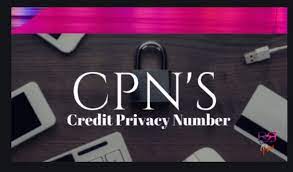Last January, I tried Whole30 for the first time. If you’re not familiar, the program involves eliminating sugar, alcohol, grains, legumes, soy and dairy from your diet for 30 days at which point you add certain items back in to your diet (ideally) one by one so you can see how they individually affect you personally.

We love it because during the holidays we tend to feel sluggish as a result of higher than usual alcohol and unhealthy food consumption and less control over what we’re eating because of more meals hosted at restaurants and the homes of friends and family.
Whole 30 allows us to become more conscious about what’s in the food we eat and how it makes us feel and the result is a month of better sleep, better fitting clothes, and a renewed sense of making healthful eating a continued priority when we transition out.
The Unintended Consequence of an Elimination Diet
One unintended consequence of our Whole30 last year was a more than 50% savings on food for the month of January as a result of no spending on alcohol, little to no eating out, and no purchasing any processed food. An additional consequence (as usually happens when you cut back significantly in one area) was more money spent in other areas.
The Solution
So this year, I decided to up the ante: in addition to Whole30 I decided to eliminate excess spending. I knew it’d be tough, but I figured it was the best way to maximize my overall savings this month and build some momentum towards one of my big goals this year- spending the summer living in San Diego near the beach.
The Whole30 guidelines are very clear- something is either compliant with the program and can be eaten or it can’t. When it comes to necessary versus unnecessary expenses, there is much more grey area. I’d argue that the categories for the very basic necessities are clear: housing, transportation, utilities, food, insurance, and debt payments.
But how strict do you get when you look into these categories?
Do you decide to take the cheapest way to get to work regardless of added time?
Do you commit to only buying the cheapest protein and vegetables during your grocery trip- or do you just make the decision not to buy packaged products?
Once your decisions start meaning harder lifestyle changes, and you can actually afford to spend what you’ve been spending knowing you’re saving more in other areas- it’s much easier to justify non-necessities as necessities. It’s very easy to see that buying a coffee or a new top is a non-necessity, but strawberries out of season? They’re part of my regular diet.
I digress. What I learned last year is that doing Whole30 saved me money on my grocery spending and eating out, but because I was home a lot more and it was a miserable winter in New England the restriction in my diet led me to spend more on clothes, Amazon, and other miscellanea- there was a box at my door almost every day.
This year, in an attempt to avoid this I created what I thought were specific guidelines for allowable spending: I would eliminate Uber in favor of walking and public transportation, cut out all online shopping whether for “necessities” or non-necessities and look to find a substitute for anything I ran out of during the month, and I would only allow entertainment spending related to building relationships with friends and family.
THIS WAS WAY TOO VAGUE.
I realized very quickly that drinks with friends was no problem- I’d order a seltzer water which meant my wallet and my Whole30 were both safe. When it came to dinner or other activities though, spending had the potential to spiral out of control.
I needed to have a spending limit for friend activities this month so that if something was out of my agreed upon budget I knew right away to decline or suggest a cheaper alternative leaving no room for potentially convincing myself on the merits of a spa day with a newly single and devastated girlfriend.
The Lesson
So the moral of the story is: significant elimination in diet and in spending over a short period of time is no problem if you prepare yourself for it by giving yourself strict guidelines for what you will and won’t allow and for how you’ll treat true emergency situations. You can really do anything in 30 days- the light is at the end of the tunnel. If you’re too vague, though, you’re setting yourself up for failure. Decision making can be much harder when you’re using effort to exercise restraint- so make it easy on yourself to make decisions. Your wallet will thank you.
Source: Nicole Peterkin [https://blog.peterkinfinancial.com/]








